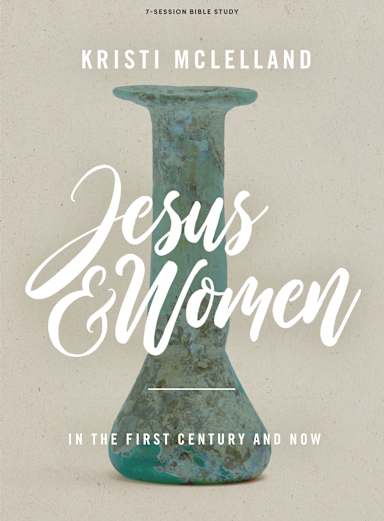In Matthew 9 we see a woman with an ongoing issue of blood that had lasted twelve years. This condition would have rendered her unclean according to Jewish law. Being considered unclean according to Jewish law had some significant effects on her day-to-day life. She would not have been able to attend temple or synagogue; in this time and culture, that prohibition amounted to effectively being cut off from the religious community and teaching. God's people and God's house, places where we often find refuge and solace today especially in times of suffering, were not a refuge for her. In fact, the religious community had effectively turned its back on her and avoided association with her.
She would have been considered on the outside of the social world—in other words, "socially dead." These considerations are especially painful when you remember the communal nature of the Middle Eastern culture. This woman would have been shunned from society to the point that even her family members would not have been allowed to touch her or comfort her physically without becoming ceremonially unclean and excluded from the community until they could be ritually cleansed.1 It's hard for us to fathom how alone she must have felt.
This woman on the edge of society, the one who had been dealing with years of pain—physical, emotional, and spiritual—reached for the "edge" of Jesus' cloak (v. 20). The Greek word for edge used in this passage is kraspedon.2 This same word appears in the Septuagint, the Greek translation of the Old Testament, in reference to the tassels that all Jews fixed on the "edges" or "corners/wings" of their outer garments. The Hebrew word for edge is kanafayim.3 The woman with the issue of blood reached for Jesus' healing edge of His robe.
By reaching out to her, Jesus helped usher her back into society and stuck up for her in the eyes of the world.
Kristis McLelland
Consider what it must have taken for this woman to reach out to Jesus—a woman who had been isolated from the community of God's people and access to spiritual teaching. I believe this woman acted out of significant faith. I think that in reaching out to grab the wing of Jesus' robe, she was taking God at His Word in Malachi 4:2 and was asserting her belief in Jesus as the Son of God. In spite of all she had been through, in spite of the way the religious community had probably shunned her, she exerted faith in Jesus. She placed her hope in God's promises and in God's character.
This scene in Matthew 9 seems to be a literal fulfillment of Malachi 4:2—"the sun of righteousness will rise with healing in its wings" (CSB). And don't miss this. In this moment, Jesus rewarded her faith, healed her, and brought her back to life within her Jewish community. He provided physical and spiritual healing. By reaching out to her, He helped usher her back into society and stuck up for her in the eyes of the world. In her cultural context, the idea of someone unclean touching a holy rabbi like Jesus would have been scandalous and risky. According to the tradition of the day, Jesus would have had every right to react harshly toward her and dismiss her, maybe even kill her.4
Pay close attention to Jesus' reaction here. He didn't condemn. He didn't dismiss. Instead, the Bible says Jesus turned to her, He saw her, and He said, "Take heart, daughter … your faith has healed you" (Matt. 9:22). What a gorgeous gospel truth. Praise the Living God.
Sources
1. Herbert Lockyer, All the Women of the Bible (Grand Rapids, MI: Zondervan Publishing House, 1988), 221.
2. Strong's G2899, Blue Letter Bible, accessed Oct. 7, 2019
3. Strong's H3671, Blue Letter Bible, accessed September 30, 2019
4. Kent Dobson, NIV First Century Study Bible (Grand Rapids, MI: Zondervan, 2014), 1,208.
Imagine walking the dusty roads of Galilee with Jesus, just to touch the edge of His cloak and hear Him say, "Take heart, daughter, your faith has healed you."
In Jesus and Women, join biblical culturalist Kristi McLelland on those dusty roads as she transports you back to Jesus' world, stepping into the footsteps of the women who came face to face with the living God. Over 7 sessions, examine the historical and cultural climate of first-century Middle Eastern society to not only understand Jesus more deeply but to fuel your worship of Him today.
Jesus' love and kindness to the women he met face to face is also now meant for you. Learn more in Jesus and Women by Kristi McLelland.

